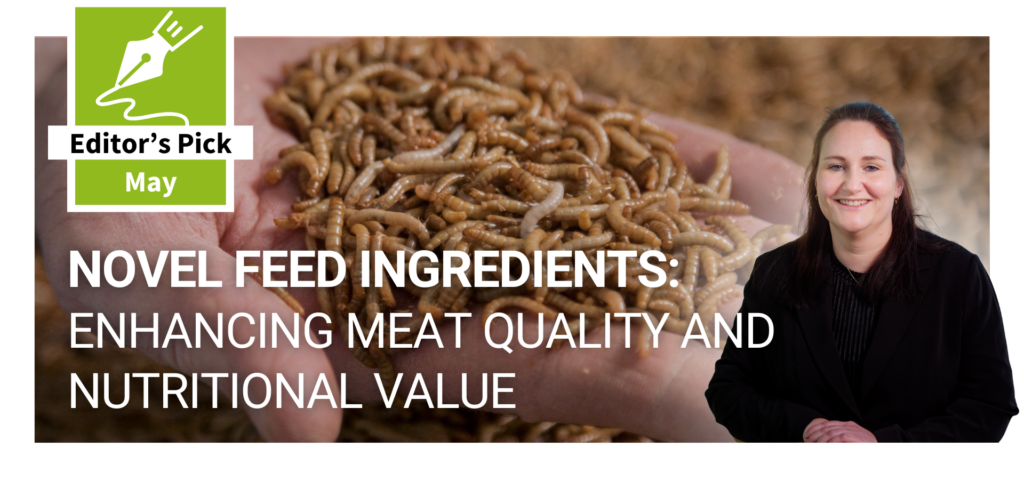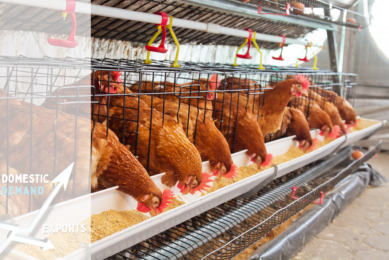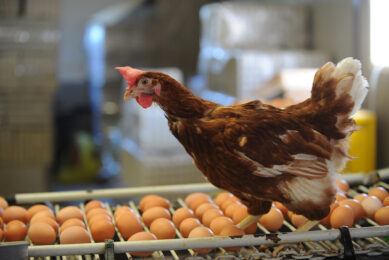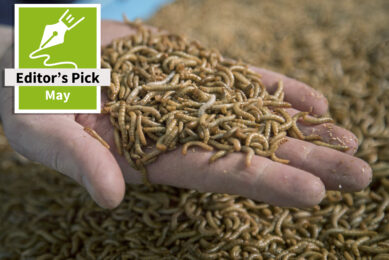Black soldier fly larvae’s impact on slow growing poultry

Black soldier fly (BSF) larvae supplementation in the diet of the slow growing breed Bianca di Saluzzo has been found to improve growth without compromising animal health or meat quality.
Researchers from the University of Turin, Italy, wanted to look at sustainable protein sources in poultry feed and knew that BSF larvae are a promising solution due to their high protein content and sustainable production.
Focus on growth, intestinal health & meat quality
However, past research has focused on fast-growing breeds, while the effects on native breeds, have been less explored. The study therefore aimed to evaluate the impact of BSFL supplementation in the diet of slow-growing chickens, with a focus on growth, intestinal health and meat quality for final consumers.
The study
The experiment involved 144 male Bianca di Saluzzo chickens, each 39 days old, individually marked with wing tags, and housed in the university’s experimental facility. There were 6 replicates of 8 birds for each of the 3 treatments.
The study lasted 135 days, ending when the birds reached 174 days of age, with an intermediate slaughter at 147 days to assess potential age-related effects. Before each slaughter, individual birds were weighed. Two birds per replicated were selected based on average live weight, resulting in a total of 36 birds per slaughter.
Dietary treatments
3 dietary treatments were tested: the control group (c) received a basal diet adapted to niche poultry market, using local ingredients (maize meal 46.1%, field bean 11%, pea protein 10.8%, barley 4.7%, sunflower meal 9.5%, maize gluten 11.6%, soybean oil 1.6%, apparent metabolizable energy 11.8 MJ/kg, crude protein 18%, ether extract 3.7%, crude fibre 4.8%.
The 3 experimental groups were given the same basal diet with an addition of 5% of the expected daily dry matter intake, either as dehydrated (DL) or live (LL) black soldier fly larvae.
Mortality and health status were monitored daily throughout the study and from 39 days the birds’ live weight and feed intake were recorded every 21 days with the feed conversion ratio (FCR) calculated.
Results
The study demonstrated that BSF larvae supplementation, both in dehydrated and live form, improved growth performance, with an increase in final weights compared to the control group.
No significant differences were found in feed conversion ratio, liver and spleen weight or histomorphometry between groups. BSFL supplementation did not negatively affect immune function or liver metabolism.
Higher production propionic acid was detected in the BSFL fed groups compared to the control, suggesting an effect on volatile fatty acid production. Gut microbiota analysis showed an increase in beneficial bacteria, such as Faecalibacterium, in the live larvae group.
Finally, the meat fatty acid profile and atherogenicity and thrombogenicity indices did not undergo significant changes, implying a low potential risk to consumers’ cardiovascular health.
The scientists said the absence of negative effects on meat lipids confirmed the nutritional safety for consumers, making BSFL a valid alternative in poultry feed.











